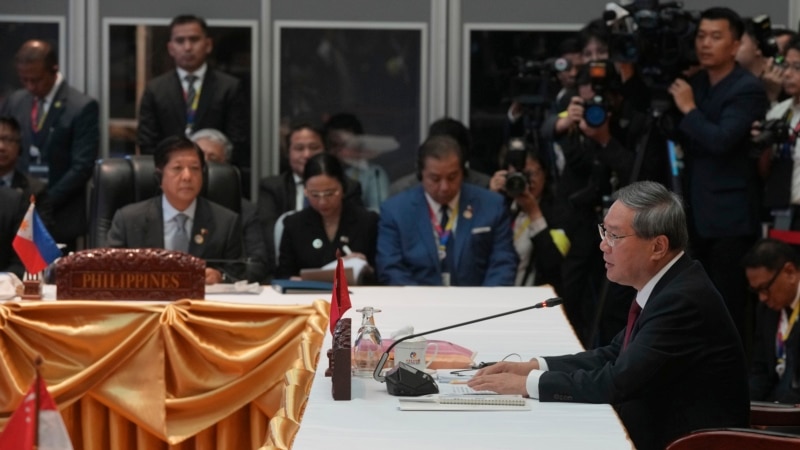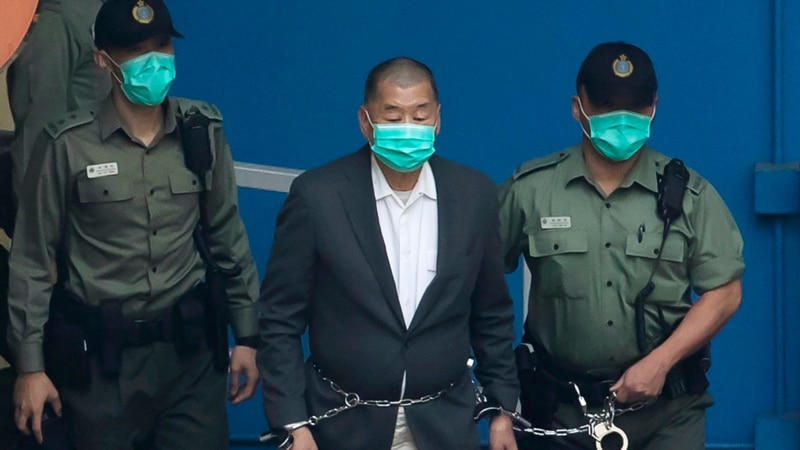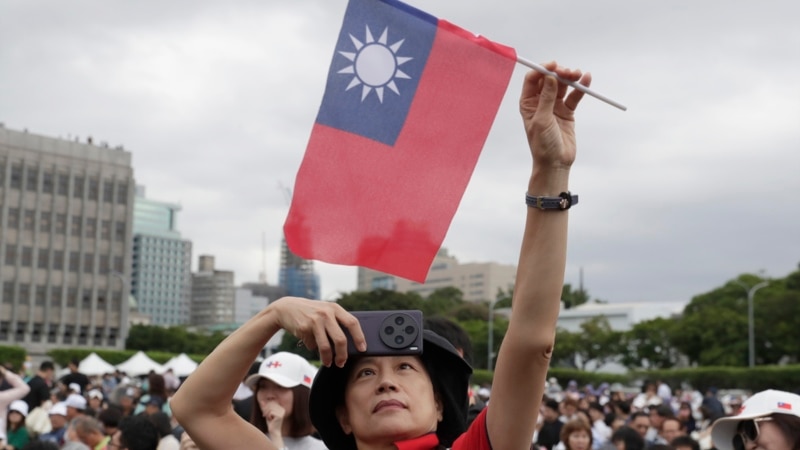Thailand’s Constitutional Court ruled Wednesday to dissolve the opposition Move Forward Party and ban its executives — including up-and-coming lawmaker Pita Limjaroenrat – from politics for a decade.
The court’s decision is the latest dilution of democracy by the conservative Thai establishment which refuses to cede power to pro-democracy movements, reform advocates say.
The nine judges decided that Thailand’s largest parliamentary party should be dissolved and its executives banned from politics for 10 years for breaching constitutional protections of the monarchy with a 2023 election campaign call to reform the royal defamation law, which criminalizes criticism of the monarchy, Thailand’s top institution.
“’The party’ intended to weaken the monarchy …making it the enemy of the people,” the court’s ruling said.
“The court considers their actions antagonizing towards the [royal] institution,” it added.
Move Forward’s predecessor party, Future Forward, was disbanded by the same court in 2020.
Even with Future Forward barred, the Move Forward Party in recent years sustained efforts to amend the law which protects the monarchy from criticism and allows long jail terms and has seen dozens of democracy advocates charged and convicted in recent years for insulting or disparaging the Thai monarchy.
By now legally sidelining the Move Forward Party, the ruling on Wednesday effectively nullifies the votes of 14 million Thai citizens – in a country with a population of some 71 million.
Speaking to reporters later, a grim-faced Pita denied the party had set out to antagonize the monarchy.
“You may be disappointed and angry, I understand you, let it all out today … tomorrow we will pass through it … we’re not going to let it eat us up,” he said.
“We have to express our anger at the polling station instead of every election from here on out.”
Many Thai observers expressed dismay.
“This lost decade of Thai democracy continues,” Khemthong Tonsakulrungruang, a constitutional scholar at Chulalongkorn University, told VOA.
“This is now our new normal,” he said.
International observers waded in on the dissolution of a party – which, with Pita in the lead – carried hopes of a democratic reset for a country worn down by a decade of government run by former generals – turned civilian politicians.
State Department spokesman Matthew Miller said the U.S. was “deeply concerned” by a ruling which “disenfranchises the more than 14 million Thais” who voted for Move Forward.
Last year’s poll victory generally humiliated the older, better-funded conservative parties and spread anxiety among the establishment.
The voters’ ballots made clear in 2023 that dominant, establishment interests in Thailand could be at risk when younger Thai citizens got behind progressive policies proposed to reform the kingdom’s monopolistic economy and top-down politics and dilute the power of the royalist army in the country’s politics.
Move Forward gradually, during the second half of 2023 and early 2024, was nudged into an opposition role by a conservative coalition and by senators appointed by the previous military-stacked government.
Then the party and its 43-year-old dynamic leader, Pita, a Harvard graduate, was besieged by legal cases. Wednesday’s ruling obstructs and stalls the promising political career of Pita.
‘This is not justice’
Many of the party’s 144 lawmakers are expected to migrate within 60 days to a new party, which has been prepared in the event of dissolution.
Some in Move Forward, instead, may defect to the governing coalition, headed by Pheu Thai, the political vehicle of billionaire Thaksin Shinawatra, who at 75 remains at the center of the kingdom’s politics.
The government, though, also faces potential upheaval in the weeks ahead.
Prime Minister Srettha Thavisin, a real estate tycoon who entered top-level politics at age 62, faces a court decision, scheduled next week, which could lead to his removal as government leader after barely a year.
The Constitutional Court is planning to rule on the consequences of Srettha appointing a key cabinet member with a checkered past. The cabinet member, in a chief of staff type role, resigned in May after a previous conviction re-emerged in public, disqualifying him from office.
The Constitutional Court has a history of banning Thai political parties, especially those that advocate for better, stronger democratic institutions in Thailand and which have rattled the conservative order for two decades with election wins.
“This case is another example of blurring the line between legality and political preference,” said Verapat Pariyawong, who teaches Thai law and politics at the University of London’s School of Oriental and African Studies, and advises The Parliamentary committees.
“But I am not at all surprised given that such lines have been crossed so many times before, at the heavy price of weakening democracy,” he told VOA.
Move Forward Party leaders have said ideas of reform are likely to remain relevant in Thailand and especially if political and economic stagnation settles in, likely alienating and frustrating another rising generation of young Thais.
Thailand, which has endured a coup d’etat, roughly every seven years since it dropped in 1932 absolute rule by kings, was led by Prayuth Chan-ocha from 2014 to 2024.
He seized power as army chief in a 2014 coup from the elected government, sparking a “lost decade” of slow growth, flat wages, delayed entry to the digital economy and slumping standards in education as well as a general smothering of free speech and dissent.
As the court’s ruling condemned the party, Move Forward released a social media video with the tagline “Unbreakable.”
But some young Thais say they are now disillusioned by the chances of change.
“I’ve been prepared for this, but we just have to keep fighting,” said Nannapas Chanphasit, 20, who said she voted in her first election last year and now feels her ballot has been “voided.’”
“But this is not justice. Many of my friends say they want to leave Thailand because in two, three years’ time, we will graduate and prospects for our lives here are bleak … High cost of living. Low pay. Just no future.”
www.Megalopoles.online








